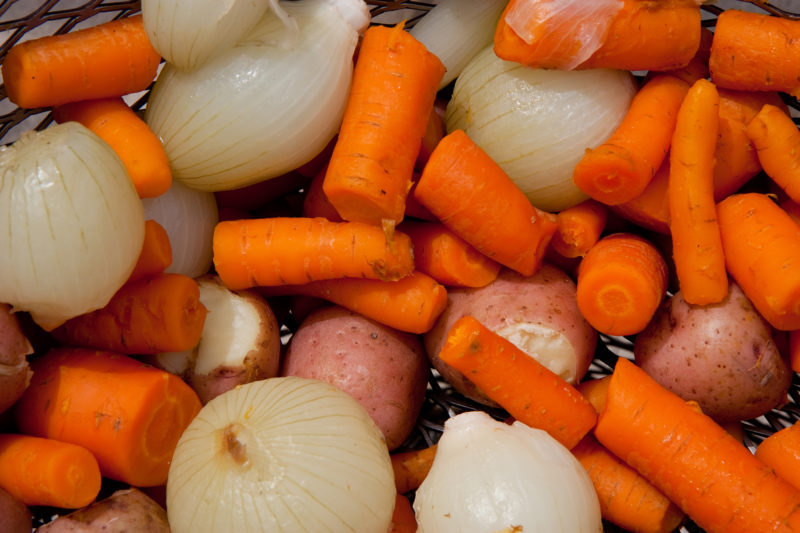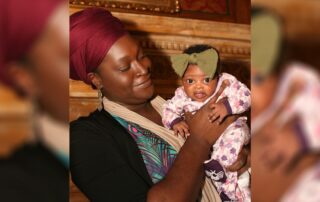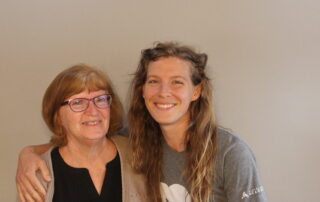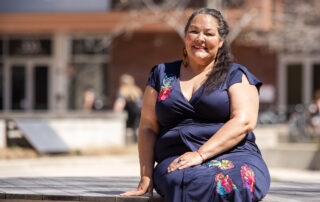Editor’s Note: Wisconsin’s calendar is filled year ‘round with Lutheran lutefisk dinners, Catholic fish fries, and other church-sponsored meals. These events serve as fundraisers and as carriers of community identity and tradition. John Hildebrand explains why we like paying money to stand in line at these meals.
On a cold night in January, the head cook ducks out of the kitchen to assess the crowd lined up in the school cafeteria. If the line ends at the double doors, all is well. But if it snakes out the doors and past the low-set water fountain to the coat-racks in the hallway, he’ll need to add another sixty pounds of Alaskan pollack to the pot.
“Father,” says the cook, jogging back to the kitchen, “I don’t mean to rush you but we could really use some more fish.”
Reverend Eugene Klink bends over the cafeteria sink in the same posture I’ve seen him bent over the altar during the offertory and for somewhat the same purpose—to feed the multitude. He thaws the frozen fish into limp fillets that go into a boiling cauldron along with a basket of peeled onions and another of red potatoes. Three minutes later, when the cook and his assistants hoist the steaming baskets from the cauldron, a steamy heat wave runs through the room as if the kitchen had suddenly crashed-landed in some equatorial jungle where the ambient temperature was 100 degrees and the air smelled of garlic, onions, and oregano.
For twenty years, Immaculate Conception Parish has held a New England-style fish boil every other Friday night between the end of January and Easter, a six-week period which roughly coincides with Lent, that gray season of self-denial and giving up. But it’s hard to see what patrons of the fish boil give up except cooking for the night. What they get, beside fish, potatoes, carrots, coleslaw and a little ice cream cup, is a break from winter doldrums. It’s a chance to mingle with strangers and to relive that thrilling moment from childhood when you look up from your lunch tray and wonder where to sit.
I’d come the night before the fish boil to help with preparations: 300 pounds of carrots and potatoes, 200 pounds of onions. The men gravitated towards the onions, cutting them at arm’s length, while the women peeled the carrots with a motion like dealing cards. As they worked, the women compared notes on the competition, fish suppers offered at neighboring parishes. “Those others,” said a carrot-peeler, “are deep-fried.”
Most often, I work the fish boil as a dishwasher, the kitchen equivalent of playing left field because there’s little pressure and plenty of time to look around. The other volunteers are people I see the rest of the year only in their professional guises and it’s reassuring to see them in a different uniform, all of us wearing the same plastic apron with a paper nametag. Only the cook crew are set apart by their pinstriped cloth aprons and no name tag because everyone knows who they are. As the customers trickle down towards the end of the evening, the head cook retrieves a few cans of beer that have been cooling in the walk-in freezer for just this moment. The beer is passed from one volunteer to another: the unspoken grace after the meal.











